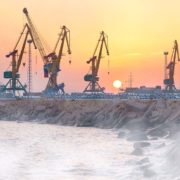Archive | Industry and trade RSS feed for this section
Industry and trade, Information and Communications Technology
 Industry and trade, Transport
Industry and trade, Transport
 Capacity development, Health, Industry and trade
Capacity development, Health, Industry and trade
 Economics, Finance sector development, Industry and trade, Information and Communications Technology
Economics, Finance sector development, Industry and trade, Information and Communications Technology
 Blog, Economics, Industry and trade, Transport
Blog, Economics, Industry and trade, Transport
 Economics, Environment, Health, Industry and trade, Social development and protection, Uncategorized
Economics, Environment, Health, Industry and trade, Social development and protection, Uncategorized
 Blog, Economics, Industry and trade, Private sector development, Transport
Blog, Economics, Industry and trade, Private sector development, Transport
 Governance and public sector management, Health, Industry and trade
Governance and public sector management, Health, Industry and trade
 Economics, Health, Industry and trade
Economics, Health, Industry and trade
 Economics, Governance and public sector management, Industry and trade, Private sector development
Economics, Governance and public sector management, Industry and trade, Private sector development

Increasing trust in cross-border e-commerce and artificial intelligence

E-commerce has lowered trade barriers and stimulated trade growth around the world, but trust issues still remain.
Rail routes offer boost to India–Bangladesh cross-border trade

The limited operation of land ports during the pandemic has increased demand for the transport of goods through railways.
Fashion industry SMEs look to new strategies to overcome pandemic impacts

The fashion industry employs millions worldwide, but its SMEs have faced unprecedented challenges and a widening digitalization gap during the pandemic.
Harnessing digitalization on the path to sustainable economic development in Asia

Digitalization is helping to transform economies by enhancing economy-wide competitiveness and productivity, with trade being an important channel. The use of big data and the emergence of online platforms have further bolstered the progression of the digital economy, particularly in Asia.
Infrastructure investment key to unlocking emerging Asia-Europe trade corridor

Spanning from the People’s Republic of China through Central Asian countries along the Caspian Sea to Europe, the Trans-Caspian Corridor is an increasingly important channel for transportation and cross-border trade. Considerable financing gaps and other challenges must be addressed to meet its rapidly expanding infrastructure needs.
COVID-19’s impact in Asia shapes blueprint for sustainable economic recovery

The economic impact of the coronavirus disease (COVID-19) pandemic in Asia highlights the importance of entrenching longer-term sustainability and economic resilience into the recovery process. The macroeconomic effects of the pandemic, as well as the impact on firms and households in Asia, are featured in a new ADBI edited book, COVID-19 Impacts and Policy Options: An Asian Perspective.
Infrastructure investment to spur firm performance in Central Asia

Effective infrastructure projects not only construct infrastructure, such as roads, railways, water supply, and electricity, but can boost economic growth in the surrounding region through “spillover effects” (Yoshino, Azhgaliyeva, and Mishra 2021). The infrastructure benefits firms by lowering costs and improving connectivity and the ease of doing business, leading to greater sales and exports.
Rethinking the impact of the lockdown on micro, small, and medium-sized enterprises in the Philippines

The National Capital Region (NCR) and four provinces in the Philippines have returned to enhanced community quarantine (ECQ) since 29 March 2021 due to surging cases of the coronavirus disease (COVID-19). The ECQ is the strictest measure for prohibiting the movement of people for nonessential purposes and strengthening curfews. The Philippine government moved to the ECQ, or lockdown, to contain the spread of COVID-19 quickly after the pandemic was identified in March 2020.
Empowering Thai SMEs to join global value chains: Policy priorities under COVID-19

Small and medium-sized enterprises (SMEs) are significant contributors to economic activity and employment worldwide, and Thailand is no exception. In Thailand, SMEs represent the vast majority of firms and employ the bulk of the domestic workforce. According to the Office of SMEs Promotion (OSMEP 2019), in 2018, approximately 3 million companies were classed as SMEs in the country, comprising 99.8% of all companies. SMEs also accounted for 14 million jobs, or 86% of total employment.
SMEs in global value chains: Catalysts for dynamic and inclusive economic growth

The world has been witnessing the active construction of global value chains (GVCs) by multinational corporations (MNCs) in recent decades. According to the World Bank (2020), the share of GVC trade in world trade increased rapidly from approximately 40% in 1990 to over 50% in 2007 before declining somewhat after the global financial crisis in 2007–2008. MNCs fragment production processes into various stages and locate them in various countries and places where the particular stages can be conducted most efficiently, or at least cost, in order to achieve an efficient production system.


Search
Subscribe / Connect to Asia Pathways
Subjects
- Agriculture and natural resources
- Blog
- Capacity development
- Climate change
- Economics
- Education
- Energy
- Environment
- Finance sector development
- Gender
- Governance and public sector management
- Health
- Industry and trade
- Information and Communications Technology
- Infrastructure
- Miscellaneous
- Population
- Poverty
- Private sector development
- Regional cooperation and integration
- Sanitation
- Social development and protection
- Transport
- Uncategorized
- Urban development
- Video Blog
- Water
Recent Posts
- Artificial intelligence: A new driver for inclusive growth and development?
- Increasing trust in cross-border e-commerce and artificial intelligence
- Enhancing access to maternal and newborn healthcare in developing Asia
- Can electric vehicles lead the way to a sustainable future?
- Mitigating climate-related sovereign risk to accelerate action on the climate emergency




Recent Comments